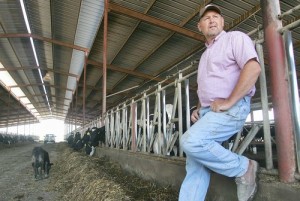The recent farm crises found nearly every country or economical union to be petitioned by its farmers and dairy organisations for both financial support and structural reform. EU farmers fought its commission over the market-based pricing system it is phasing in and American groups pushed for quotas to manage future supply. In tough circumstances, farmers all over the world were disillusioned at what they felt was a lack of government intercession over the slim to negative profit margins they received. As a point of contrast, it may be worth taking in the example of a country who, more than ten years ago, asked their government to stay out of the pricing of milk. Enter: Australian Deregulation.

On July 1st, 2000, Australia became the first major deregulated dairy industry in the world. The Australian Dairy Industry Council (ADIC), the farmers’ chief representative body, approached the federal government with a proposal that would end milk price supports and market regulations. The next year the Dairy Structural Adjustment Program (DSAP) began, extending a retail tax of 11 cents per litre over 8 years, the collection of which went to support farmers as they made the adjustment to a pricing system entirely dependent and in the mercy of the international market.
The results were described by most as disastrous. Some regions of the country lost up to 60% of their dairy farms within a few years. Those who remained were forced to expand quickly, resulting in an expedited version of the trend towards larger farms that is now accruing in the US, and soon Europe. The ADIC’s official line is that they are proud to be the only deregulated dairy industry in the world and encourages others to do so, even as their farmers receive, in general, the lowest farmgate price of anyone. The expected return in a good year for an Australian farmer may be 34 cents per litre, while an Irish or American farmer would hope for over 40 cents , and a Canadian perhaps more.
Australia now must rely on its low cost input to remain profitable and the ability to take advantage of an emerging Asian market. World prices have fallen 20% over July and August, and the country is presently limited in growth by a shortage of cows after the tough previous season led to high cull rates. Some are optimistic of a gradual rebound towards healthy prices, but it will likely require patience.
The lessons to be learned from Australian deregulation are perhaps interpretable, and may depend on what position in the dairy industry you hold. It does, nonetheless, communicate the cost inherent to a deregulated milk market, the dangers implied to small farms, and how quickly irreversible changes can occur.
